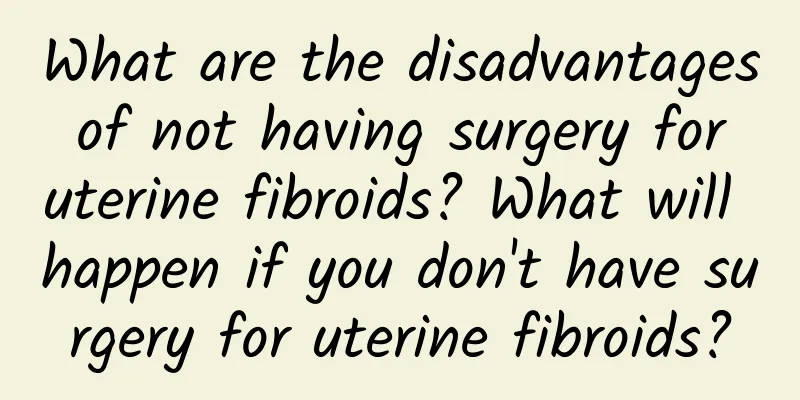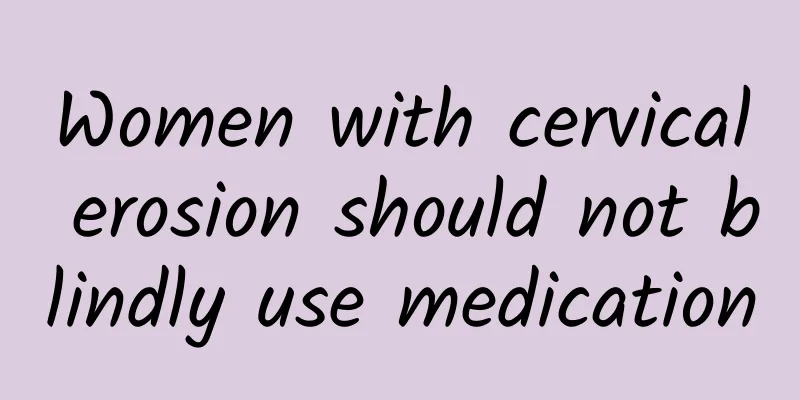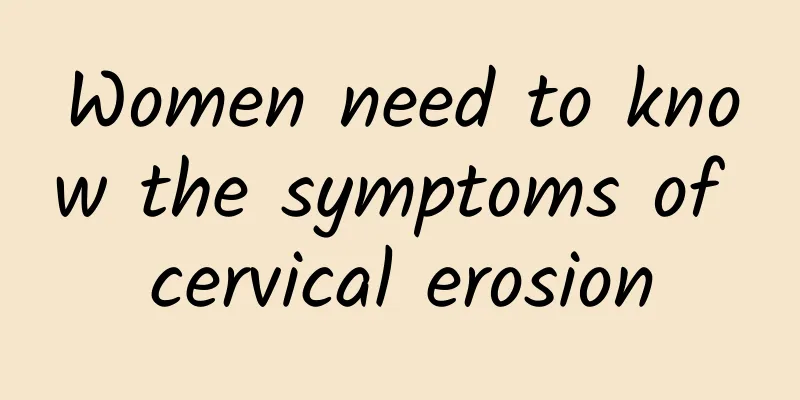What are the disadvantages of not having surgery for uterine fibroids? What will happen if you don't have surgery for uterine fibroids?

|
Uterine fibroids are common benign tumors in women, accounting for a considerable proportion of gynecological diseases. Many women have uterine fibroids, but not all patients need surgical treatment. So, what are the disadvantages of choosing not to surgically treat uterine fibroids? 1. Decreased quality of life An obvious disadvantage of not surgically treating uterine fibroids is that the patient's quality of life will be affected. Uterine fibroids may cause increased menstrual flow, prolonged menstruation, and dysmenorrhea, which can cause great distress to the patient's daily life. Women cannot participate in some activities normally in their lives, and it may even affect their work and study. 2. Worsening of the condition If you choose not to have surgery to treat uterine fibroids, the condition may continue to worsen. The size of uterine fibroids will gradually increase and may affect the normal function of other organs. Especially for those who have multiple uterine fibroids or large fibroids, the risk of worsening is higher. This will not only make treatment more difficult, but also increase the risks of surgery and the time of recovery. 3. Reproductive disorders Delaying surgical treatment may lead to reproductive disorders. The presence of uterine fibroids may have adverse effects on the endometrium, thereby affecting the implantation and development of the embryo. If the patient plans to become pregnant, uterine fibroids may threaten the safety of the embryo, leading to miscarriage or fetal maldevelopment. 4. Increased risk of complications Choosing not to have surgery to treat uterine fibroids may also increase the risk of complications. Uterine fibroids can cause a series of complications, such as uterine bleeding, anemia, abdominal pain, and compression of the urethra and rectum. If not treated in time, these complications may worsen the condition and even threaten the patient's life. In summary, there are certain disadvantages in choosing not to have surgery to treat uterine fibroids. Although surgical treatment brings certain risks and recovery period, it can effectively solve the discomfort and risks caused by uterine fibroids. If the patient has obvious symptoms, organ function is affected or plans to get pregnant, it is recommended to undergo surgical treatment in time. Only under the guidance of a doctor, a comprehensive judgment can be made based on the patient's specific situation and the most appropriate treatment plan can be formulated. |
Recommend
Is it possible to treat cervical erosion without surgery?
Is it possible to treat cervical erosion without ...
What is the unit for measuring the size of uterine fibroids? Is it centimeters or millimeters?
What is the unit of measurement for uterine fibro...
What are the typical symptoms of uterine fibroids? What are the early symptoms of uterine fibroids?
Uterine fibroids are a common gynecological disea...
Thread embedding not only helps in body sculpting, but also has these uses. Is it suitable for everyone? A Chinese medicine practitioner answers
Summer is here, and it is the peak season for wei...
Will not paying attention to hygiene lead to adnexitis?
Adnexitis is a common disease in gynecology. Most...
What kind of anesthesia is needed for uterine myoma removal? Does uterine myoma removal require anesthesia?
Uterine fibroids are a common gynecological disea...
How to take care of patients with ovarian cysts?
Among gynecological diseases, ovarian cyst is one...
How long will acute vaginitis take to heal?
How long will acute vaginitis take to heal? 1. Ac...
Bartholin's gland cyst is getting bigger during pregnancy
The main reasons for the enlargement of Bartholin...
What is the main treatment for dysmenorrhea?
Dysmenorrhea is a common gynecological disease. M...
What should I do if my menstrual flow is small after uterine fibroid surgery?
Patient: I am 46 years old and have multiple uter...
No Executive Yuan version, DPP legislators refuse to review the esophageal law
The "Food Sanitation Management Act Amendmen...
Tell you about the common sense of vulvar leukoplakia care
Vulvar leukoplakia, also known as "vulvar wh...
What are the early symptoms of vulvar leukoplakia
Understanding its symptoms is the best way to cur...
Pathological features of uterine fibroids
Uterine fibroids are the most common benign tumor...









